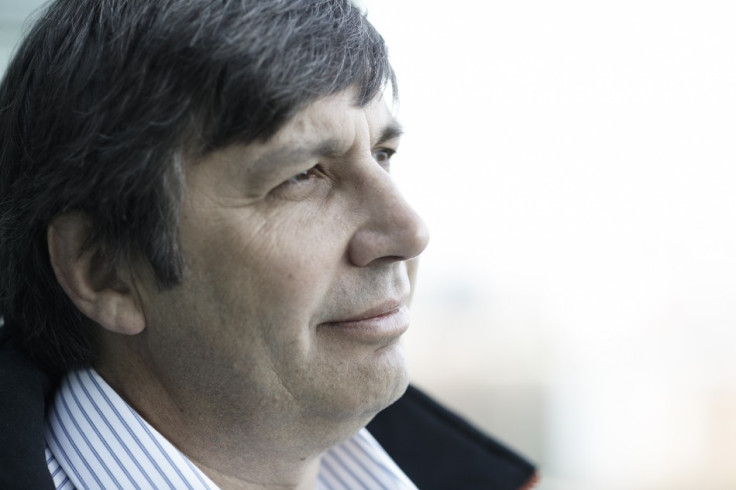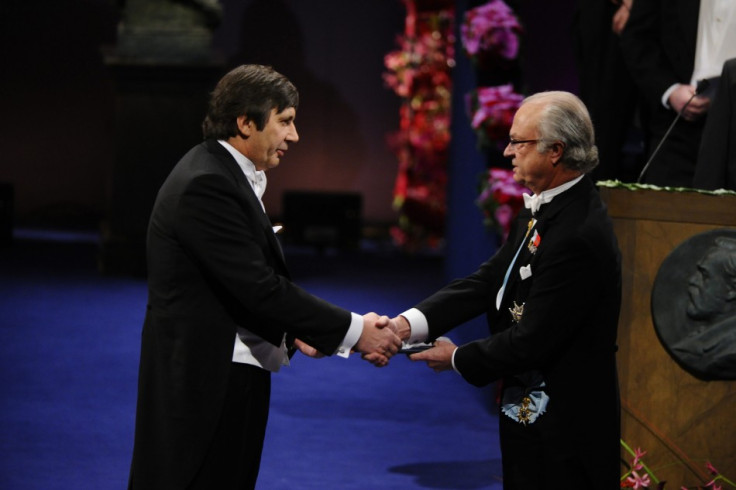Sir Andre Geim Wins World’s Oldest Science Prize For Discovering World’s Strongest Material

The scientist who discovered the world's strongest material has won its oldest science prize.
Sir Andre Geim has been awarded the Copley medal by the Royal Society for his numerous scientific contributions, but in particular for his work on graphene.
The Copley medal was first awarded in 1731, 170 years before the first Nobel Prize was handed out. The accolade has previously been won by Charles Darwin, Albert Einstein and Stephen Hawking.
Geim's collaborator at the University of Manchester, Sir Konstantin Novoselov, was awarded the Leverhulme Medal by the Royal Society. The pair jointly won the Nobel Prize for Physics in 2010.
Graphene is sheets of carbon just one atom thick - a million times smaller than the thickest human hair - and is made of the same material that is used in pencil lead.
However, it also has record-breaking strength and electronic properties. "It is the thinnest known material in the universe, and the strongest ever measured," Geim wrote in a 2009 issue of the journal Science.
It was discovered in 2004 and is now regarded as a "super material" because of its potential to revolutionise many industries, including automotive, aerospace and electronics.
Gein and Novoselov have demonstrated its use in numerous research papers, including ultrafast transistors and sensors that can detect just a single molecule of toxic gas.

Receiving the award, the Russian scientist said: "I am absolutely delighted to receive this old and prestigious award. Not only am I humbled, I also feel younger.
"I especially appreciate that the medal recognises my post-Nobel work on atomically-thin materials and their smart assemblies - this new research field is richer and even more exciting than graphene itself."
Sir Paul Nurse, president of the Royal Society, added: "I'm delighted that the Copley Medal has been awarded to Andre Geim this year. His work on graphene could truly revolutionise technologies.
"Chancellor George Osborne highlighted graphene as one of the many exciting areas of science the UK should exploit during his speech on science as a UK economic driver given at the Royal Society.
"He has since backed that up with funding and I'm in no doubt that we'll see exciting developments from Geim, his collaborator Novoselov and graphene in the next few years."
Speaking to the Times, Geim said he had always wanted the Copley medal and that he will continue his research in physics.
He also said he was "bemused" by industrial plans to exploit graphene and was not involved in the £60m Graphene Institute due to open at the University of Manchester in 2015: "I'm not interested in going into industry or property development or creating 'graphene valley' as the government would like me to," he said.
"It's a bit silly for society to throw a little bit of money at something and expect it to change the world. Everything takes time."
© Copyright IBTimes 2025. All rights reserved.






















